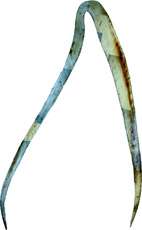Dental discovery to benefit forensic practitioners and anthropologists

Forensic practitioners and anthropologists will be among those to benefit from new University of Kent research on the dental development of humans.
The research, which was conducted by Dr. Patrick Mahoney at the University's School of Anthropology and Conservation and published in the American Journal of Physical Anthropology, has established links between tooth eruption and enamel growth in human infants, concluding that milk teeth do not develop in the same way as adult permanent teeth. Such a discovery not only opens up a new way of assessing the dental development of humans through fossils but will also assist in age-at-death determinations in forensic situations.
For the study, Dr. Mahoney reconstructed incremental enamel development in a sample of modern human deciduous maxillary and mandibular anterior teeth and compared them to his previous research on molar teeth. Until this analysis was undertaken, relatively little was known about the microscopic growth of human milk teeth along the tooth row. Partly because of this, a comparative framework for understanding the development of milk teeth in human ancestors was missing.
Dr. Mahoney expected the microscopic tooth enamel growth to be somehow linked into the sequence that teeth erupt through the gums. However, through his reconstruction, he was surprised to find that the development actually changed along the tooth row. He found that the early erupting front incisors grew rapidly and mainly before birth; the later erupting molar teeth at the back of the mouth formed more slowly, and mainly after birth.
He said: "Teeth retain a growth record. This can be accessed through the microscopic structures in tooth enamel. By examining permanent adult teeth in this way, it has provided us with key insights into the evolution of dental development, as well as aspects of life history in our fossil ancestors.
"Now that we know that human milk teeth do not develop in the same way as adult permanent teeth, we can start the discovery process again, through comparative analyses with other primates and our fossil ancestors."
Dr. Mahoney is Lecturer in Biological Anthropology at the University of Kent and Director of Kent Osteological Research and Analysis (KORA), an established unit in the School of Anthropology and Conservation offering osteological analyses of human skeletal remains. His research interests include dental anthropology, reconstructing dental development and ancient human diet.
'Incremental Enamel Development in Modern Human Deciduous Anterior Teeth' (Patrick Mahoney, University of Kent) is available at onlinelibrary.wiley.com/journa … )1096-8644/earlyview

















